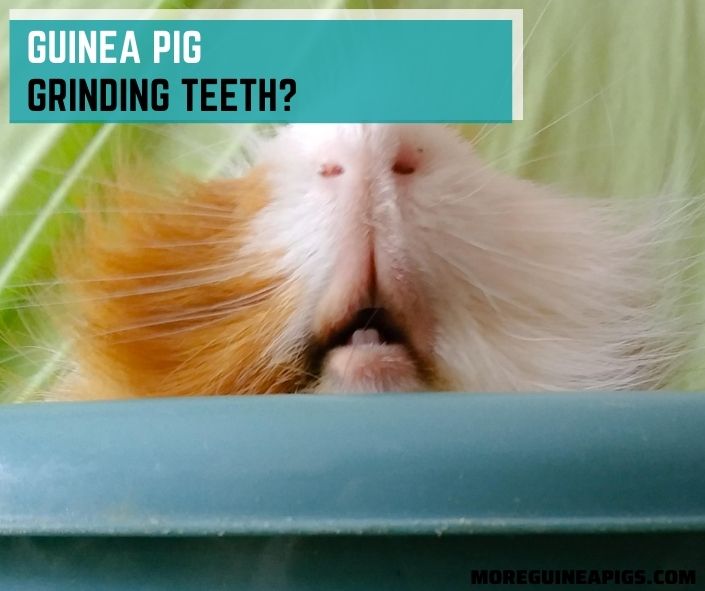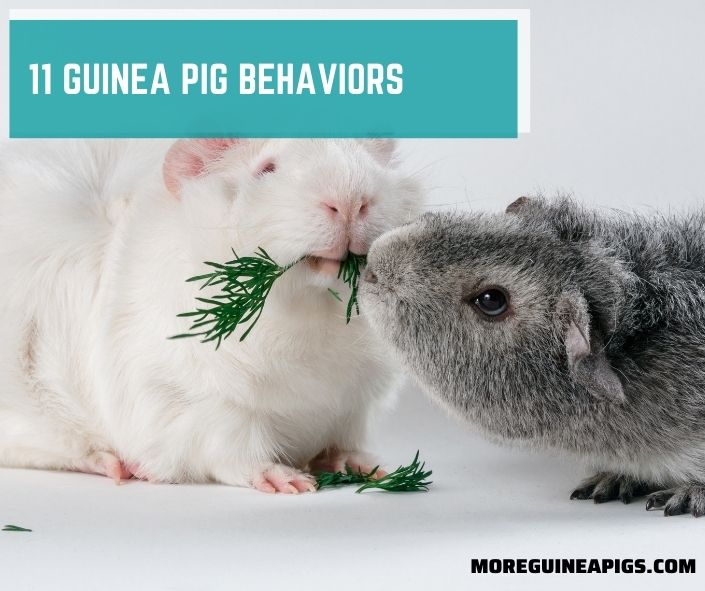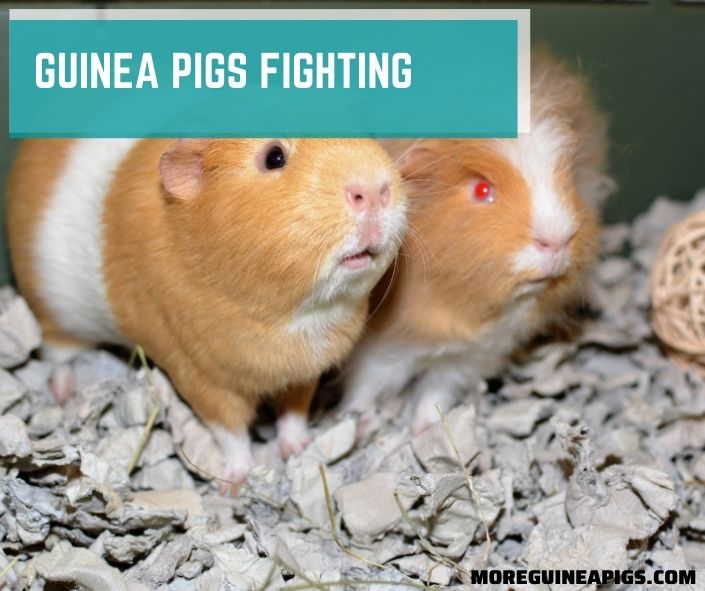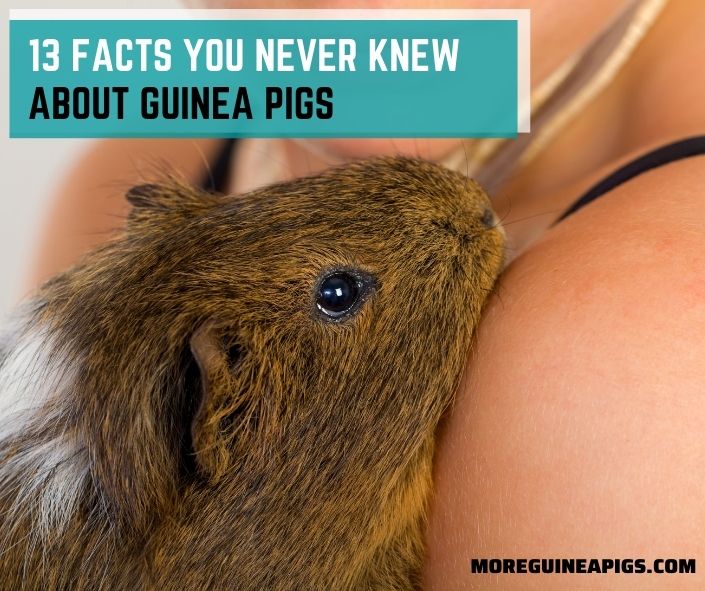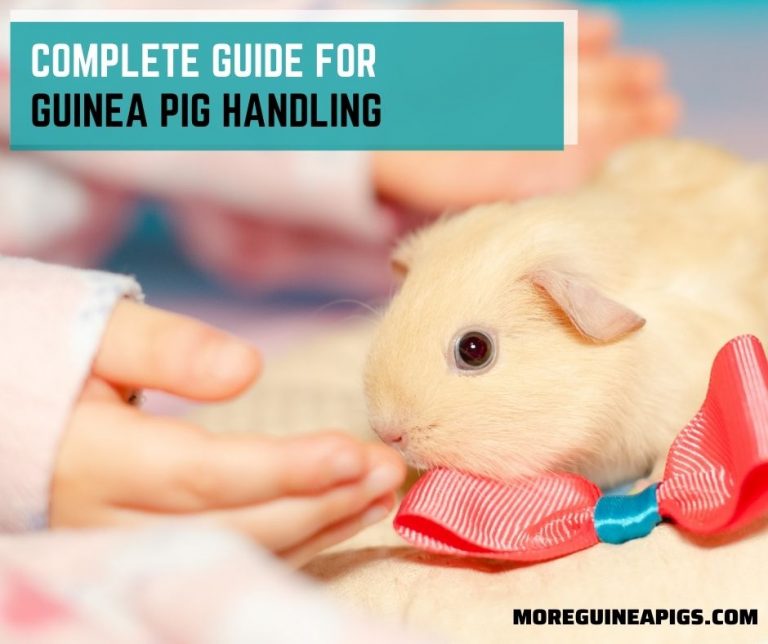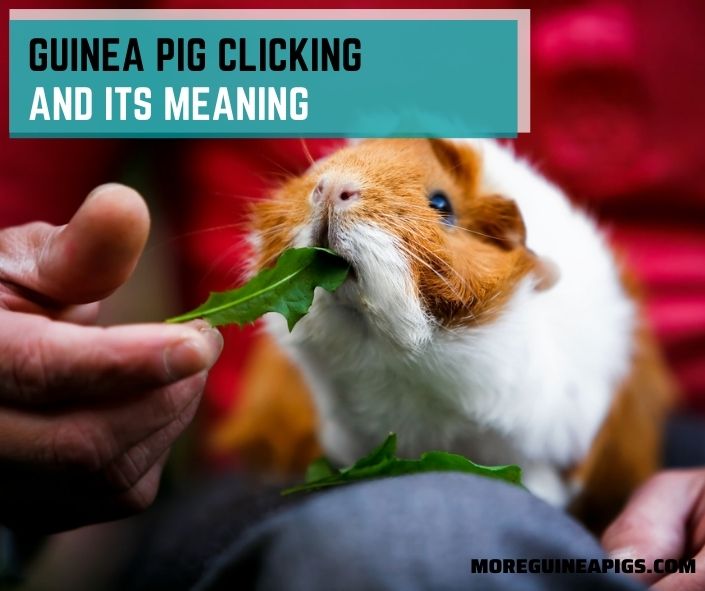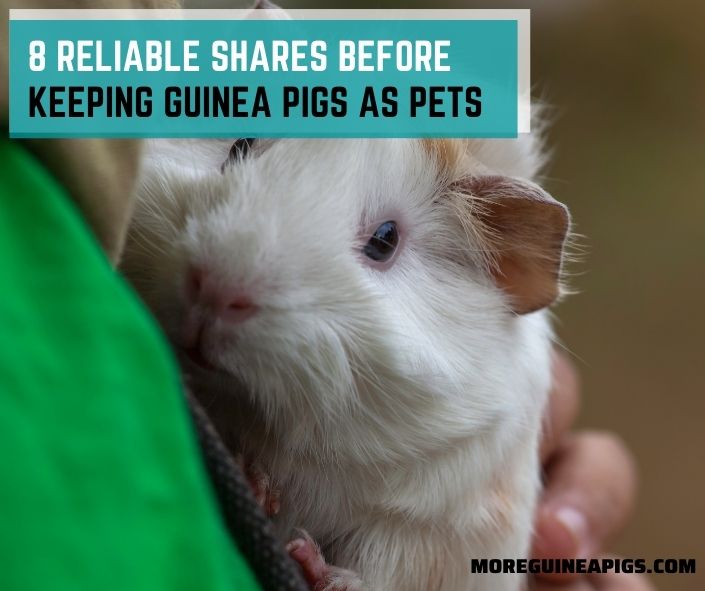What Does It Mean When Guinea Pig Grinding Teeth?
Guinea pigs are playful, expressive, and sometimes noisy/vocal pets that adore interacting with each other and human beings. These rodents are known to make various sounds in various circumstances.
Guinea pigs mostly use sounds and noises to communicate with their cage mates or owners to show you they are excited, hungry, feeling pain, or any other discomfort.
What do your guinea pigs try to tell you exactly when they make different sounds/voices.? Let us dive into this article, as I will explore the meaning when a guinea pig grinds its teeth and any other relevant information.
What Does Grinding Teeth Sound Like?
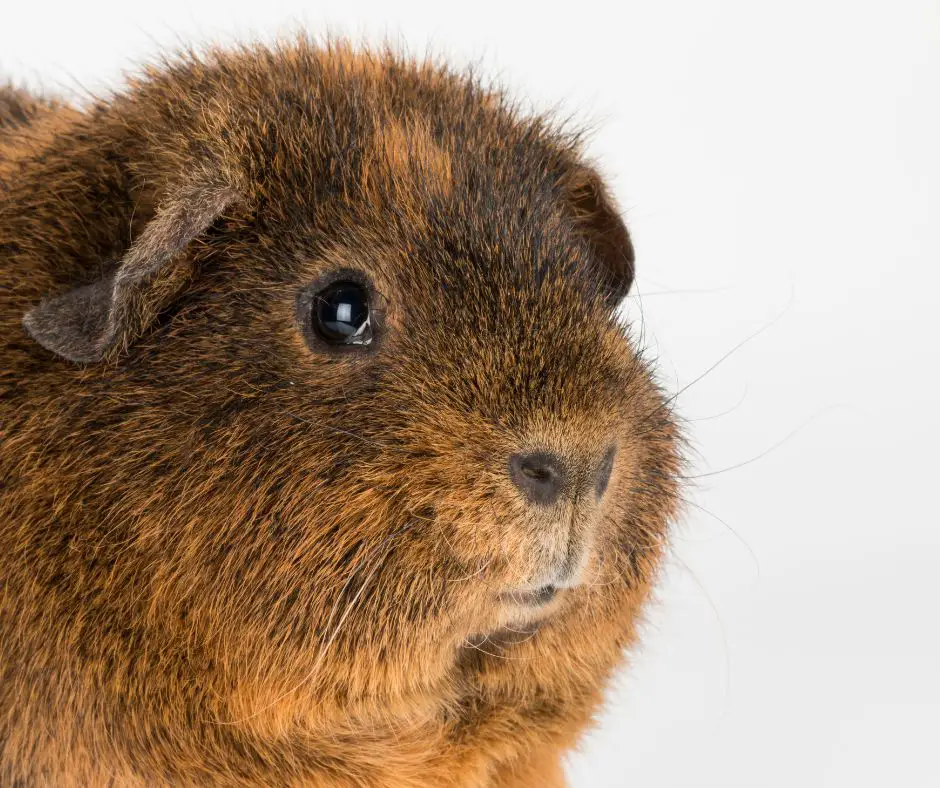
Grinding teeth in guinea pigs sounds very distinct, hard, intense and starkly realistic, loud, and sometimes angry. Likely, it has crunching sounds, squeaky and popping noises.
Teeth grinding involves a jaw grasping sound that makes the jaw move back and forth very roughly, and it is usually a sign of pain, annoyance, or discomfort.
On the other hand, teeth chattering is where the guinea pig makes a rapid squeak. It makes a low sound. It is usually a sign of aggressiveness, meaning that the guinea pig is fed up or agitated.
What Does It Mean When Guinea Pig Grinding Teeth?
Yes, it is common for guinea pigs to grind their teeth, but not often. When your guinea pig grinds his teeth persistently and more frequently, it could be suffering from underlying issues such as health issues or discomfort.
At times, grinding teeth by your guinea pig is an excellent indicator to express his annoyance to you. This could mean that he has a problem with his cage mate.
Similarly, teeth grinding by your guinea pig can also be a warning sign of a potentially serious problem such as response to pain, a dental problem, discomfort, and digestive issues as well.
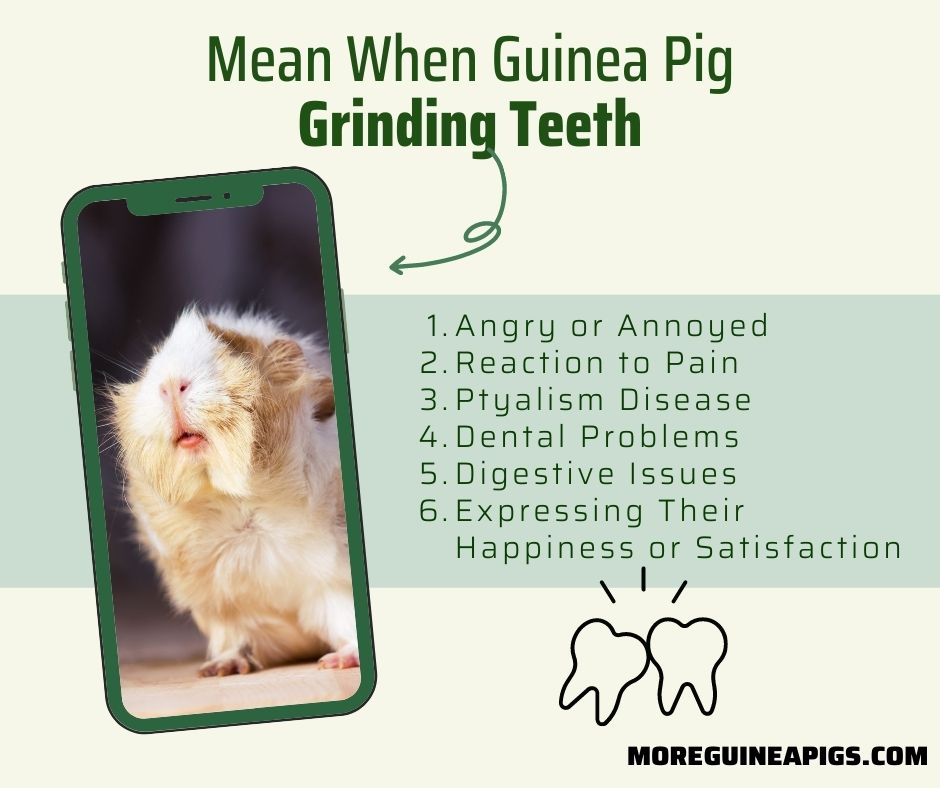
Angry or Annoyed
Whenever your guinea pig starts to grind and chatter his teeth, he will usually express his annoyance and show you he’s angry. He will express the behavior when he gets into contact with or meets a new partner/guinea pig.
That said, the sound acts as a territorial mark and for establishing a pecking order as well between your piggy and the new cage mate. Prior to fighting, they will also grind their teeth.
In addition, when you do something that makes guinea pigs uncomfortable, they will be intimated and upset too, which will make them grind and chatter their teeth in an attempt to resist you.
Examples of mischiefs that can upset your guinea pig are: excessive handling, trimming his nails, getting near to her babies immediately after giving birth, unhygienic and little enclosure.
Teeth grinding will be accompanied by signs such as slipping off from your hand, nip/bite back, fidgeting.
As the owner, you should monitor the reaction and behavioral changes if you bring in a new guinea pig and be ready to start fighting. You should also limit or avoid unnecessary handling.
You should also maintain hygiene by changing the beddings frequently and housing your guinea pig in an ideal hutch.
Reaction to Pain
The other reason your guinea pig will grind his teeth is when he’s feeling pain as a result of injury, surgery, joint inflammations, and wound or urine infection.
Unlikely, your guinea pig is an easy target for predators; as a matter of fact, he will try to hide the apparent signs/symptoms as much as possible, so you will have to be observant.
The accompanying signs are a sudden decrease in weight, lack of appetite, unusual water drinking, fever, rough hair coat, and lethargy.
Therefore, should you notice the above signs, you should contact your vet soon enough for your guinea pig’s examination and give you advice on how to handle it under such conditions.
Ptyalism Disease
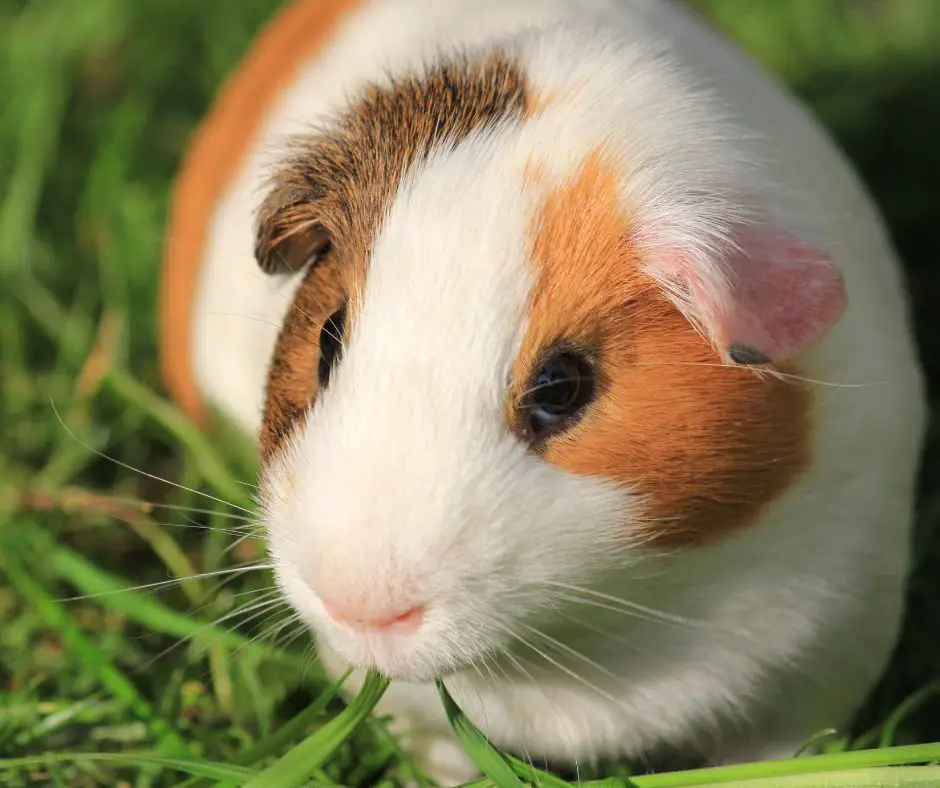
This is when your guinea pig produces excess saliva. It can result from one or more causes, which leads to sore skin around the facial region of your guinea pig.
It is mainly caused by dental problems and is prone to guinea pigs with dental disorders. Foods or drugs which are bitter and has a foul smell can cause some level of ptyalism (but will last shortly)
Invasion of the oral cavity by abscesses or tumors can also cause excessive saliva. It is accompanied by discomfort, grinding teeth and drooling, discharge from the eyes and nose.
Moreover, guinea pig fur gets wet close to their mouth and has unusual chewing habits or a foul smell from their mouth.
If you recognize the signs of the above disease, you should take your piggy to the vet for a clinical and dental examination.
You will also tell your guinea pig pet breeder to choose a family line that does not have dental problems. Supportive treatments will also help, e.g., fluid therapy, syringe feeding, and antibiotics,
Dental Problems
Dental problems are noticeable in your guinea pig. He will grind his teeth while having difficulty chewing food. Guinea pig teeth grow ceaselessly and, therefore, need regular maintenance.
Your pig needs a constant supply of grass hay to wear down its molars. Dental problems can be brought by overgrown or long teeth, vitamin C deficiency, inadequate fiber in the diet, metabolic bone disease, or genetics.
It is accompanied by low water and feeds intake, long/extended teeth, weight loss, drooling, and red gums. To return your piggy’s dental to normal, you should visit your vet for a routine dental checkup.
In addition, you should syringe or spoon-feed your piggy to provide a diet rich in Vitamin C or vitamin C supplements. The pet breeder should also select a piggy with a good family of dental-free problems.
Digestive Issues
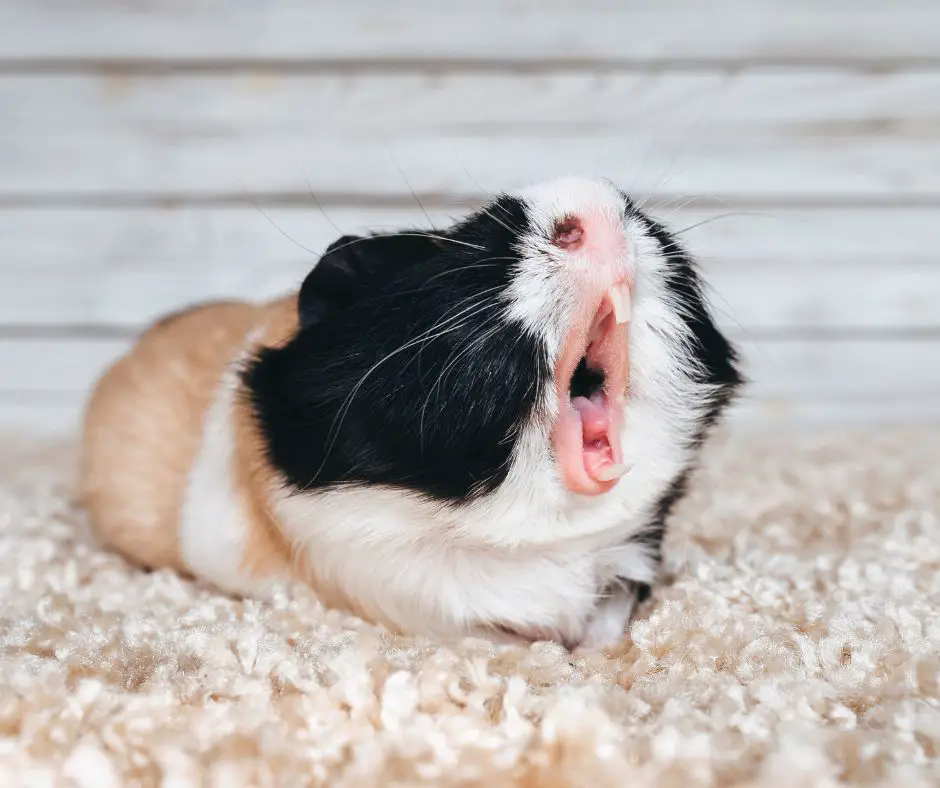
Your guinea pig will grind his teeth when he feels unwell, nausea, which will mean that he has stomach upset.
Your piggy will appear bloated, listless, and showing discomfort by grinding teeth. In case of stomach upset, your piggy will not regurgitate any food or when he eats something he does not like.
If you face difficulty eliminating it, that could be life-threatening to your guinea pig. Poor diets and a painful abdomen cause stomach upset.
It could also transpire from inappropriate feeding time, gut stasis (many gases in the stomach), and gastrointestinal diseases. It’s accompanied by signs like a painful abdomen, and anorexia.
To ensure your guinea pig’s well-being and health status are top-notch, you should avoid giving too many foods that have gas content like broccoli.
Likewise, provide a quality and sufficient diet, and maintain the feeding time. It would be best if you visited your vet for further medical examination.
Also read: What Can Guinea Pigs Eat? A-Z Food List
Expressing Their Happiness or Satisfaction
Your guinea pig will express his contentment/satisfaction either to you or cage mate. He will make low pitch sounds and teeth grinding, which might carry over into snack and leisure time.
He shows no obvious distress when grinding teeth while sleeping or feeling relaxed enough to sleep during that time. The noises your piggy produces are harmless in such circumstances, so you should worry less.
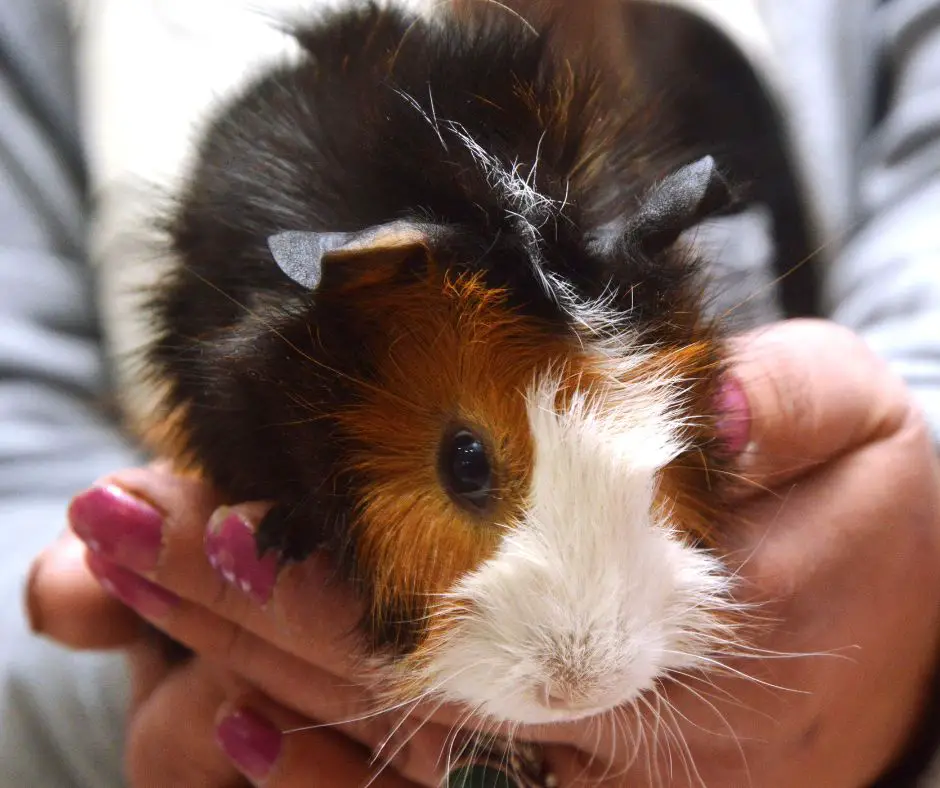
Do You Need to Worry If Guinea Pigs Grind Teeth?
Yes, you should be concerned about grinding teeth in your guinea pig when it is accompanied by worrying signs such as pain, distress, stomachache, chewing difficulties, dullness, nipping, or any other displeasure.
That said, you should always give your piggy a lot of care and attention so that you understand and respond to him right away when you hear strange sounds.
However, you should worry less if the grinding teeth show no obvious distress signs. This could mean that he is happy, satisfied, or contented.
Guinea Pig Grinding Teeth and Related Concerns
While teeth grinding is not always a big issue, we have a couple of concerns that arise from this behavior, including:
Guinea Pig Teeth Trimming
Broken or long teeth are harmful to your piggy; it is a sign of a dental problem that will make your guinea pig grind its teeth ceaselessly.
Therefore, it is worthwhile to trim his teeth to be even and smooth. His can be trimmed periodically by a vet and only if needed for 6 – 8 weeks for the rest of their lives or provide sufficient hay to keep the teeth in check.
Guinea Pig Teeth Chattering While Sleeping
Chattering in your piggy is always associated with happiness or contentment—your piggy grinds and chats teeth on a low tone when happy and comfortable.
Clean and warm beddings will make your piggy feel relaxed and ready to sleep, leading to teeth chattering.
Check out: 4 Best Guinea Pig Bedding
Kaytee Clean & Cozy White Small Animal Bedding
Guinea Pig Teeth Grinding When Eating
To grind teeth when eating, it will happen if your guinea pig warns his cage mate to keep off from its food. It could also mean that he is dragging food away from the cage mate.
A Guinea pig will display loud, annoying shrieks rather than grunts. Likely, when providing your piggy with food he does not like, he will grind his teeth.
Guinea Pig Teeth Grinding Toys
Guinea pigs are active and playful pets, so to keep your guinea pig entertained, you will provide him with toys like rolling balls in his cage, which will make him grind his teeth on them.
Also read: 9 Best Guinea Pig Toys
Guinea Pig Purring
This happens when your piggy is producing low vocals and constant sounds. It means that your piggy is feeling happy and contented. The purring sound is typical when you slowly pet your piggy.
However, your guinea pig will produce the sound depending on the environment; for instance, at times, you hear a startling noise or feel threatened abruptly, and he will produce the same noise but in short spurts.
Kaytee Chew & Treat Toy Box Guinea Pig
Wrapping Up
In a nutshell, guinea pigs are worthwhile pets that are expressive and vocal. They love to interact with humans or cage mates as well.
Understanding their behavioral patterns and the sound they make is key to maintaining happy and healthy guinea pigs. As a result, you should know and understand the language of guinea pigs.
As the potential owner, you will be able to tap into their feelings, needs, and thoughts, creating a mutual and long-lasting bond. You should prioritize your guinea pig’s health and happiness.
